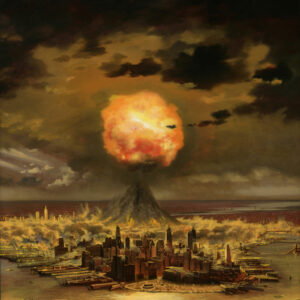Regulating Apocalypse
 “Don’t let the perfect be the enemy of the good!”
“Don’t let the perfect be the enemy of the good!”
“Don’t be such a purist!”
“Be strategic!”
“Do what’s possible!”
“You can’t deny reality / human nature / religious text.”
The phrases used to oppose proposals for major change haven’t changed much for centuries, in both meanings of that phrase. No doubt these sayings sound better in certain circumstances than others, depending on the details. But in general, I find that they sound worse since the status quo locked in the climate collapse, and since the risk of nuclear catastrophe reached it’s current record high and rapidly climbing position.
I’ve just read a new book called War, Law, and Humanity by James Crossland that looks at efforts to regulate or end war from the 1850s up through the beginning of the 1900s. One strain of thought was that war needed to be eliminated and replaced with nonviolent arbitration. Another was that war needed to be regulated, doctors and nurses admitted onto battlefields, standards upheld for the treatment of prisoners, particular weapons banned, etc. The peace advocates were mocked as dreamers. The humanizers were the “realists.”
One must now write history from a nonexistent future. History cannot actually judge anything or anyone because it will not exist any longer in the brains of any living homo sapiens. But we can, pre-extinction, imagine our way forward and look back. If we end in nuclear holocaust, will those who tried to end war still have been silly dreamers? Or will world government or mandatory arbitration or disarmament sound slightly less goofy if the alternative that peace advocates identified for many decades as apocalypse turns out to be apocalypse?
…click on the above link to read the rest of the article…